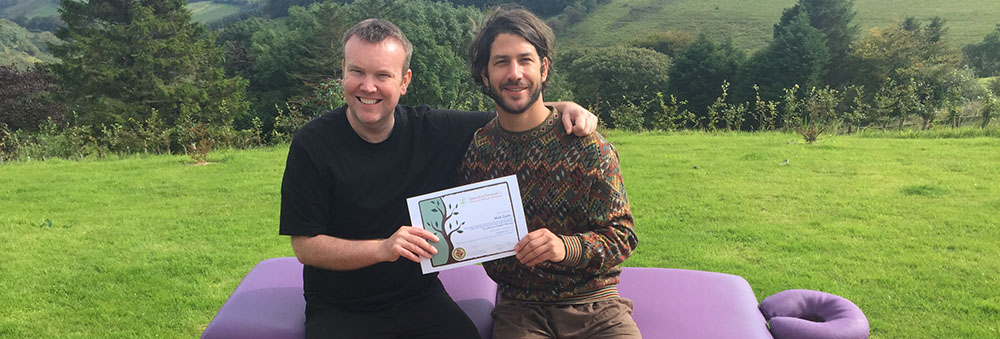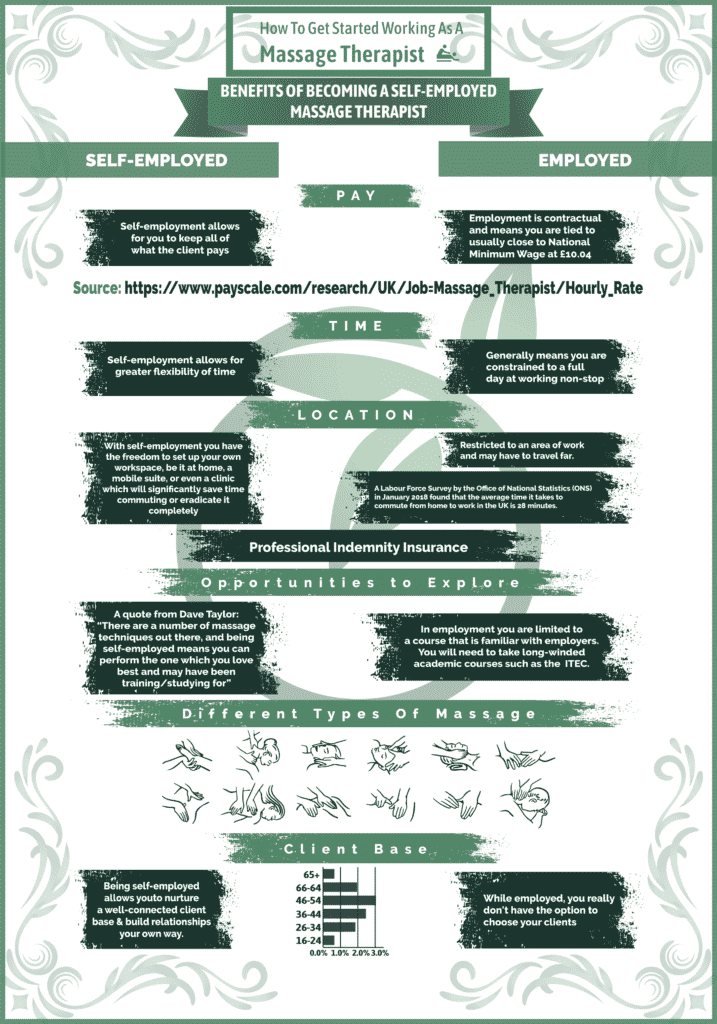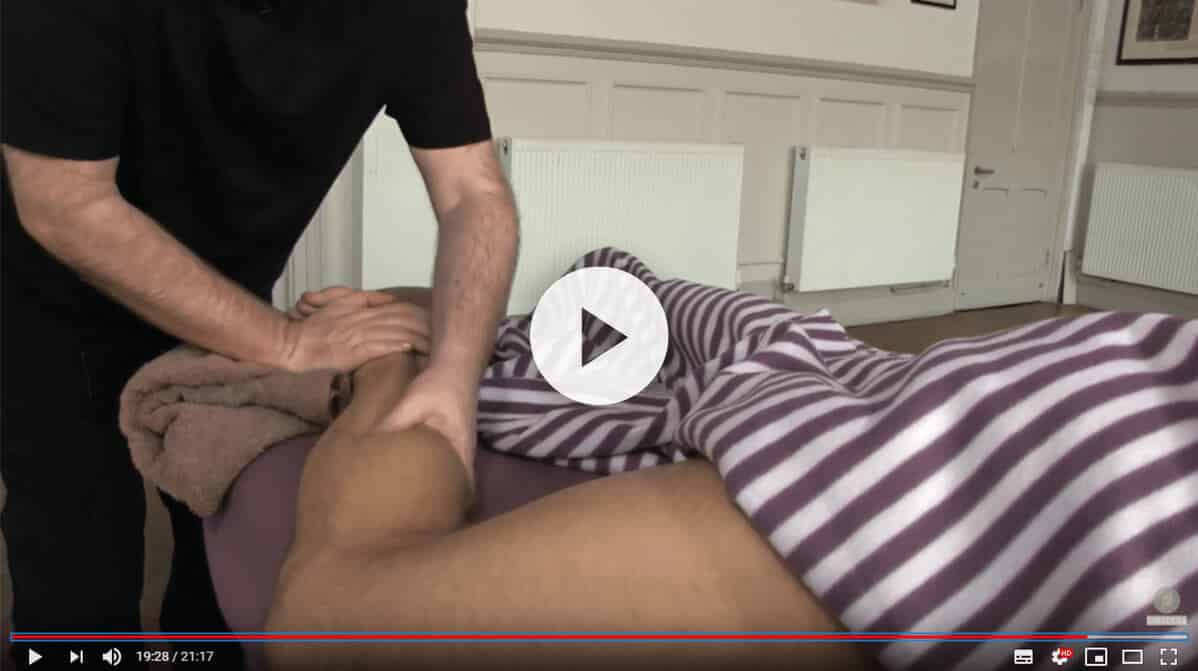In today’s busy society, knowing how to make people relax and providing them with treatment to do so is extremely useful and the demand for people who can provide this has gone up. If you have ever had a massage, you will know how rejuvenating this experience is. Massages aren’t only there to help you relax; they are also recognised in the medical field as a healing method and can also help people who have been diagnosed with mental health conditions, such as clinical depression. With so many different fields of work alongside the qualification, a career in massage therapy will always keep you on your toes. If you are unsure about how to become a massage therapist, read on.
Reasons to become a Massage Therapist in the UK
Before you learn how to become a massage therapist, you must first ask yourself why! There are a whole host of rewarding reasons to become a massage therapist in the UK with its flexibility, focus on physical and mental well-being, and the opportunity to not only meet a variety of different people but help them too.
1. Appreciate What Does a Massage Therapist Does
If you are on the fence about going into massage therapy, then here are some of the reasons you should consider it.
The work is flexible, whether you have your own practice or work for someone. You have the opportunity to set up and work from home, which is great if you are a parent or a carer for someone. The whole reason for this field of work is to help people, which can make you feel good about yourself. If you are an active person or want to become more active, then massage therapy is a great career option because you need to put in a lot of work and it can be physically challenging. This is also a very sociable job, and you will meet a lot of people through your work. Where you decide to work is ultimately your decision. Make sure you research each individual field so you can understand more about your roles in that area; this is important to ensure you are passionate about your work and enjoy it too.
The Actual Work and Schedule
As a professional massage therapist, you would begin your session with a client by checking their medical history, their eating habits and general lifestyle. Next you would devise a treatment plan that would involve applying pressure with your hands to the areas of the body that are holding tension in order to provide relief. To help ease friction and make the massage more comfortable you would probably use powder or oil on the skin.
Among your clients you will have people who are looking to heal both physically and emotionally. These may be people dealing with an illness or just recovering from one and seeking stress relief, people who suffer from anxiety and/or depression, and those who are trying to find ways to relax.
The flexibility and being able to schedule appointments so they work for you is a major perk if you become a massage therapist. If you have your own practice and work alone, the less you work, the less you earn, which could cause problems for your business. You should always recommend follow up appointments to any type of client. Whether you prefer working in the morning or in the evening, most of your day will be filled up with appointments. The majority of full-time masseuses will see an average of five clients daily and each appointment will last 60-90 minutes.
2. Develop the Relevant Skills
When you are a massage therapist, you need to start off your sessions in a relaxing atmosphere, so you will need to make sure the environment for your clients is soothing. You will need to be able to communicate well with your clients and make them feel comfortable enough to discuss their needs in term of pain and stress. Once you know more, you will need to be able to provide the necessary massage to help relieve their issues. Everyone is different, so when it comes to a client’s individual comfort and privacy levels, you will need to make sure you respect that. Finally, once you have regular clients, you will need to make sure you keep track of their progress. There are a number of different environments a massage therapist can work in, including hospitals, private practice, health clinics, and sports therapy.
3. Acknowledge the Different Types of Massage
All massages are different and will provide something different for the client. If you are wondering how to become a masseuse, it’s best to start with general masseuse qualifications before you branch out into different fields. Once you become more experienced, you can think about massage specialism’s, such as:
- aromatherapy massage
- deep tissue massage
- baby massage
- hot stone massage
- pregnancy and post-natal massage
- Indian head massage
- sports massage
- Thai massage
- shiatsu
- Swedish massage
4. Understand Your Qualification Options
There aren’t set massage qualifications to be massage therapist. If you’re trying to establish your own business, becoming accredited is highly advisable because it will help make clients feel more confident that they’re in safe hands and may be the factor that makes the client decide who to go with. Masseuse qualifications usually take around six months to complete. The certification you can get in massage therapy is the ITEC (Level 3 RQF) Diploma. With this diploma, you can go into a number of different massage styles (discussed above). As you get more experience, you can build-up your training through CPD or a BTEC level 6 Professional Diploma. You can even get a degree in this field of work. Sometimes, massage therapy apprenticeships come up. There is also the option to study massage therapy online, but some clients can be sceptical about this method of training.
5. Decide Whether to Become an Employed or Self-Employed Therapist
Being self-employed requires an innovative spirit and a lot of hard work to start things up, but there are some great benefits. Once you have a selection of clients sorted to support your business, you will be able to pick and choose when you work (as long as it suits your clients), keep all the profit, and will have the freedom to choose what treatments you provide. If you do decide to follow this path, then you need to make sure you register yourself with HMRC as self-employed. You need to have professional insurance, fill in self-assessment tax returns, manage your appointments sufficiently, and keep an accurate record of your income.
How Much Can I Expect to Earn?
How much you earn as a massage therapist UK will depend on your personal situation. The average hourly pay of a massage therapist when the choose to be employed is £10.16 an hour and the average annual salary £20,044 per year, but people can earn more or less than this estimation. However, if you choose to work for yourself and get your own clients then a massage therapist can charge around £60 an hour. 15 hours of massage a week has the potential to turn over £900. The field you work in and whether or not you are self-employed will also help determine how much you earn in this field of work.
When pursuing a career in massage therapy, you need to make sure you do the research before you go into the training. As you improve, you may get the opportunity to be accredited by the Federation of Holistic Therapists or the Complementary and Natural Healthcare Council. Once you are registered as an accredited therapist, this will open up a number of extra opportunities.





Good advice on how to become a massage therapist. I have done it for over 14 years myself and have enjoyed it ! The only setback for me is the pain I endure I’m my arms , back and sciatica. I know I need more massages to prevent this . I ❤ massages! 😁
Good morning,
Where would I need to start first by becoming qualified in massaging?
I really want to become qualified, as I feel I would like to be more on my feet and I would love to make people feel relaxed and calm.
My current job is working as a construction administrator where I sit on my chair all day, but I honestly think I would enjoy massaging more as this would help my mental health.
I love making my family feel relaxed so I would love to help clients to relax and help their mental health.
I just struggle where to start off.
The problem is I am located in King’s Lynn, Norfolk but I can travel or move to a different location.
Thank you.
Melissa Franklin
Hi Dear Dave .
I am writing here to ask questions please. I would like to ask you about massage management please . My English is basic . I got a massage shop , i used to have 3 masseuses who can help but now they gone due to civid 19 and tram construction in front the shop . I am looking for help for massage management like who can help me adjust website , help to write form for coved 19 for customer to fill , help find masseuses who can work with me and others work to be done . I closed shop since March . I need to open again as lots of expenditures waiting . Could you kindly advice please who can help ? As I can do the massage but I got difficulty to run business in the same time .
Kind regards
Sirinuch